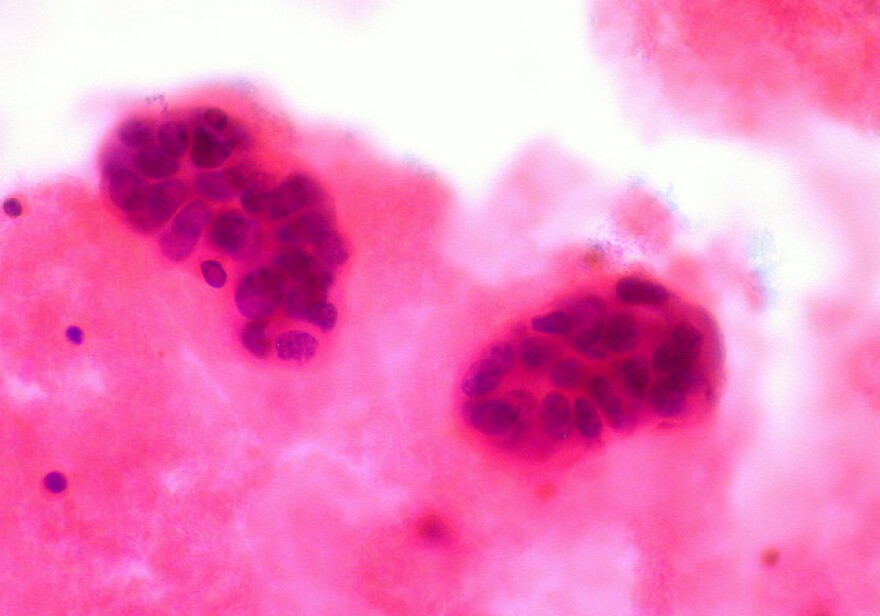Interview Highlights
Lewis: A prominent breast cancer researcher recently called for a major expansion in genetic screening for breast and ovarian cancer. Mary-Claire King won this year’s Lasker Award, known as the American Nobel Prize in medicine. She discovered the gene known as BRCA1, which can mutate and lead to breast cancer. In accepting the award, she suggested that all women age 30 and older should be screened to see if they have that gene. But another breast cancer expert, Dr. Eric Winer, of Harvard Medical School, told me he’s not ready to sign on to such an expansive undertaking.
Winer: I think much of this is based on a paper that she and others published that looked at doing genetic screening in Israel. Where in fact among the Jewish population, somewhere in the range of 2 and 2.5% of the population has a mutation in what are called known at the BRCA1 and BRCA2 genes. And these are genes that, if a woman has a mutation in the gene, there is a dramatically increased risk of developing breast and ovarian cancer. The issue in terms of translating those findings to the US is that outside of the Jewish population, that in the general population in the US, the non-Jewish population, the chance of finding the mutation is more in the range of 1 in 500. This is a much rarer event. At least at this point in time, most of us would be a little concerned about a general recommendation that everyone be screened. I think for women who are of Jewish background it’s a reasonable thing, for women who have a family history, it’s reasonable. But I don’t think that most of us are ready to be screening every woman over the age of 30.
Lewis: So what do you think is behind this? Why would a woman of her stature go ahead and recommend this?
Winer: People are allowed to disagree. I think that from her standpoint, what she sees, is a situation where if a woman knows she has a mutation there are steps she can take that would reduce her risk of developing and dying from breast or ovarian cancer. That, of course, is a laudable goal. On the other hand, 1 in 500 is pretty rare. The other problem that comes up is that when you talk about screening the entire gene, you often find changes in the gene that you aren’t sure if they’re important or not important. That in itself can lead to anxiety or unnecessary procedures.



